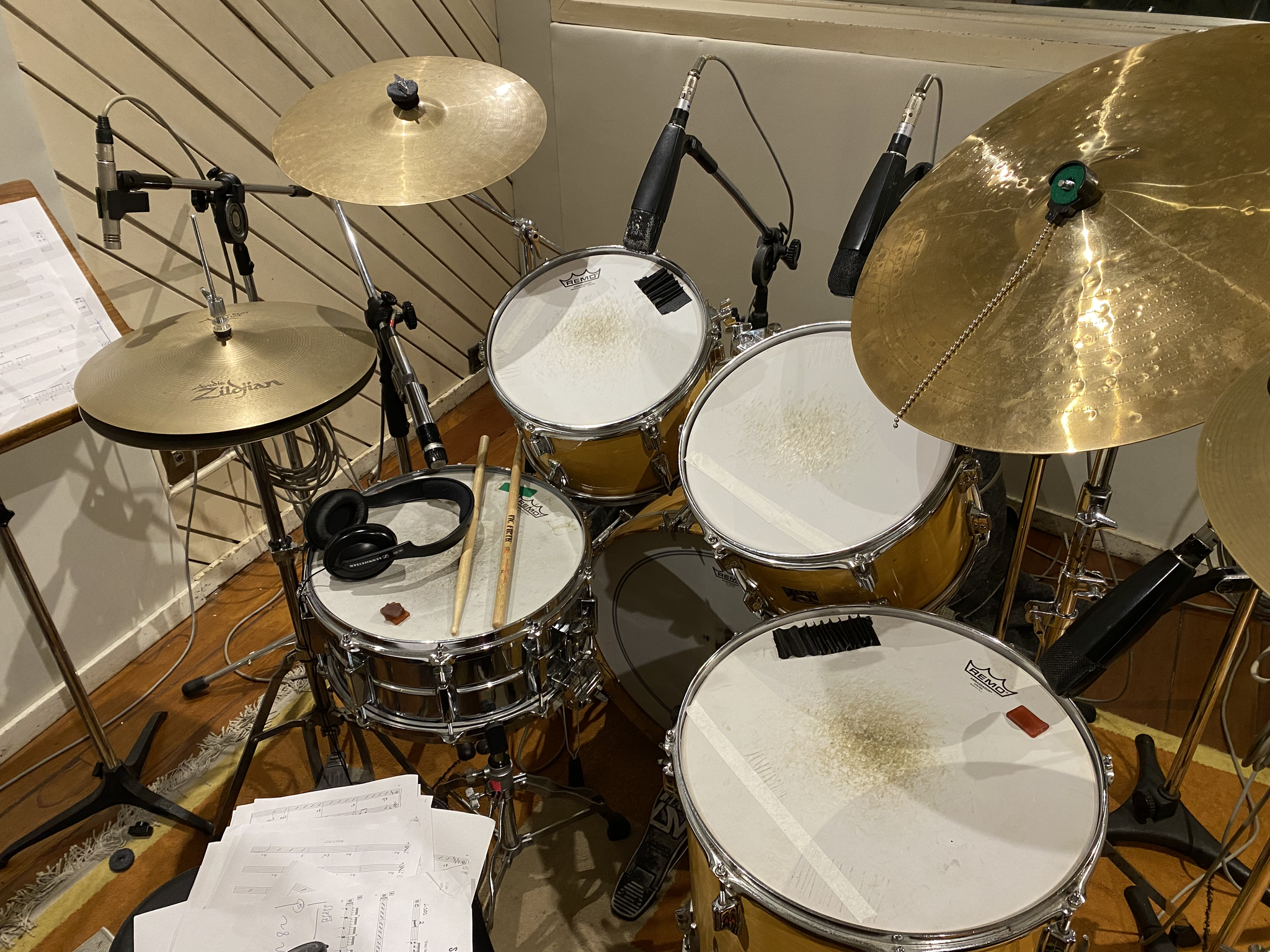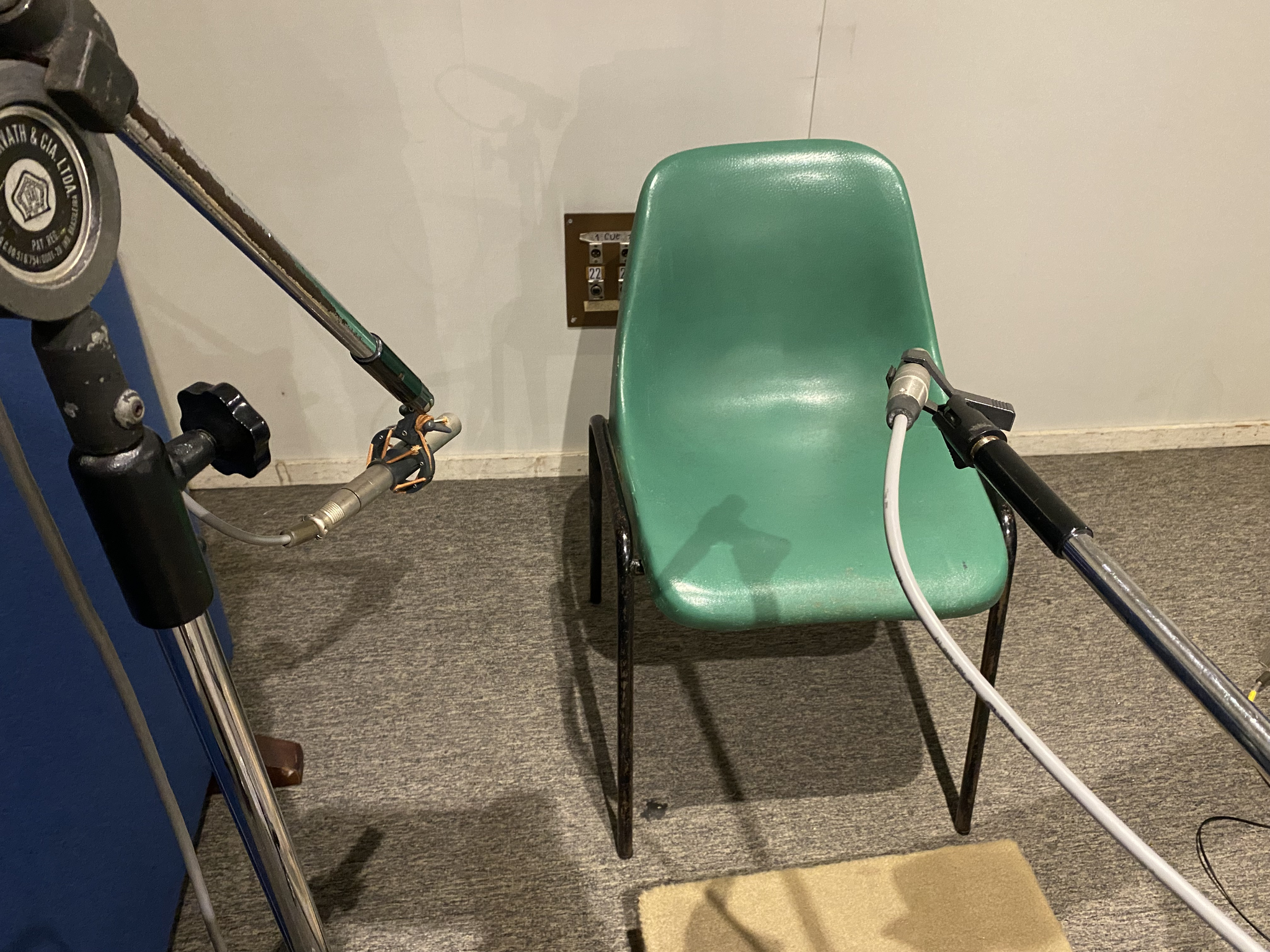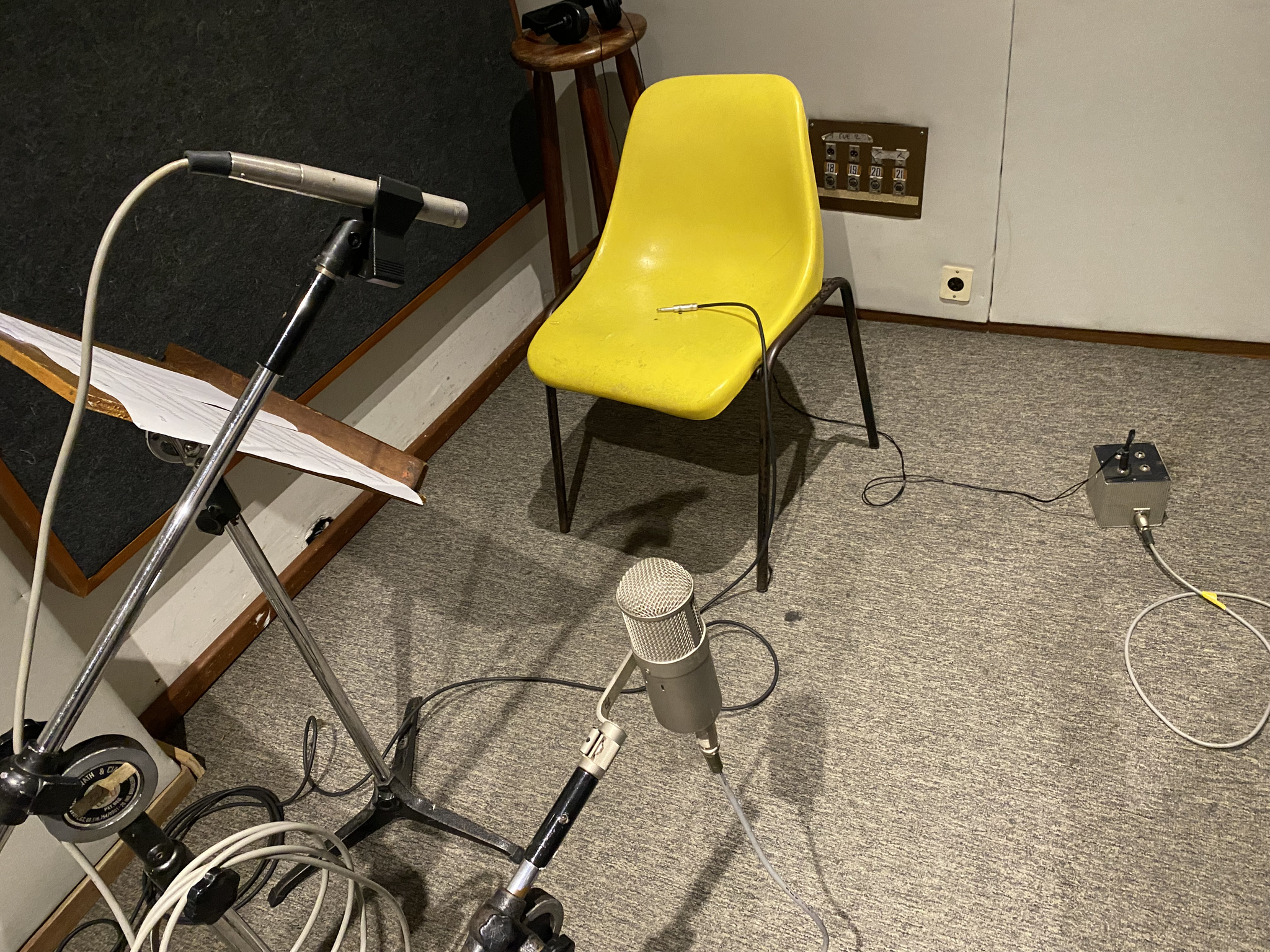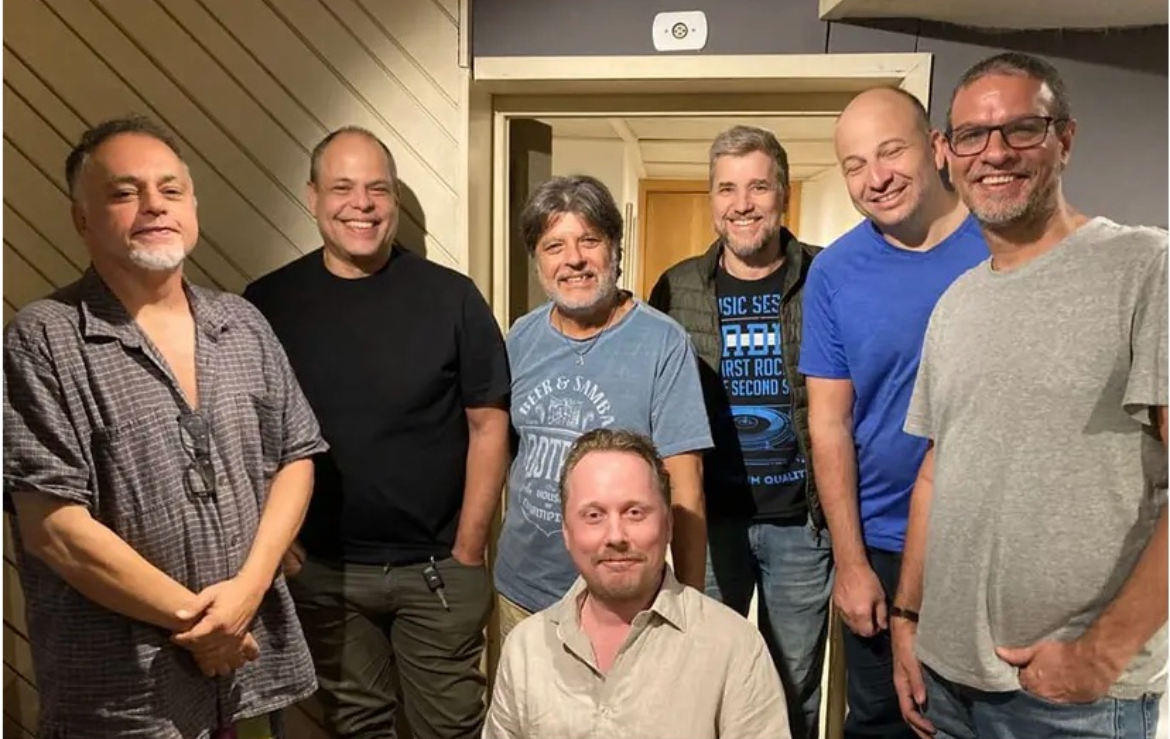Reflections on recording process - Rio De Janeiro
About a month before recording, we finalized the setup via the internet. I needed every instrument isolated for my concept to work, and upon arriving at one of Rio's premier studios, I found everything set up, tested, and ready as agreed. The engineer, assistants, and musicians were clearly familiar with the tacit, international way of working, which was evident in their efficiency and confidence. That was reassuring to know coming to a new city with new people.
When we began recording, they had already listened to the demos and understood the music. I started with a composition that was musically straightforward. Discussions about the form often took precedence over my initial arrangement proposals, but this was beneficial, ensuring everyone was on the same page.
The atmosphere was particularly noteworthy. Without an artist present, a unique and non-intimidating environment allowed the music to come alive in a different way, something I had anticipated.
There was a collective drive to address challenges, with each member dedicated to serving the songs and me. Their talent greatly exceeded my expectations, and I felt incredibly fortunate.
On the technical front, communication with the sound engineer was minimal. At one point, he lit a cigarette and casually asked, "Boss, is it okay to smoke?”
That summed up our interactions but that was also fine since the sonics of the instruments and the recording process was what I would expect. Most planning and technical discussions had already been handled upfront via email, which was probably best given the language barrier.
The technical team included one sound engineer and two assistants. One introduced himself as Rafael, while the other's identity remained unknown. I didn't interact much with them.
Decision-making was interesting. Leadership responsibility often hinged on my affirmations and encouragement for everyone to trust their intuition.
However, for specific questions, they sought my decisions. It became clear to the musicians that while everyone's input was valued, authority shifted fluidly based on the nature of the decisions required.
Reflections on recording process - Nashville
In Nashville, I felt more at ease with the studio process and confident in the language, enabling me to guide the session with greater precision. My instructions were more specific than in Rio, and the absence of a language barrier allowed me to incorporate the musicians' feedback more effectively and use humor to ease any tension.
The engineer, with whom I have a strong working relationship, efficiently managed the session, ensuring we adhered to union rules, which I respect but don’t usually need to consider. This support was invaluable.
The musicians were exceptionally skilled and communicated remarkably well as we found the direction for each song: They exchanged ideas fluently, and the structure for each track quickly emerged. Their patience and professionalism were evident when addressing errors; instead of frustration, they saw mistakes as opportunities for refinement, working meticulously with the engineer to achieve perfection. Hearing this level of dedication on my compositions was profoundly impressive.
In Brazil, the process is notably informal, drawing inspiration from old traditions and multi-track recording methods, likely influenced by practices developed in the UK and the USA. The studio culture in Rio encouraged open dialogue among participants.
In contrast, Nashville balances its traditional roots with a focus on progress, adhering to 'best practices' or 'usual practices' in the industry. Despite this, the musicians told me they found my session more enjoyable and creatively freeing than usual due to my attitude and framework.
Although recognized as the authority, I aimed to create an environment where musicians could express their individuality and preferences. The absence of a primary artist brought interesting dynamics.
The musicians had to interpret and fill the void using their imagination and experience. Despite this, familiar group dynamics and well-defined roles facilitated smooth interactions.
Effective communication and collaboration were essential. My approach was to extract the best from the sessions without being overly demanding. I would postpone judgment and show trust in the musicians' exceptional abilities. My comments were encouraging and precise, yet open to interpretation. I always kept in mind that I could make changes later, maintaining full authority over the project throughout the process. Balancing authority with creative freedom allowed the musicians to shine while ensuring that the overall vision of the project was achieved. This flexible yet structured approach ultimately led to two distinct recordings that were both cohesive and filled with diverse, authentic expressions.








